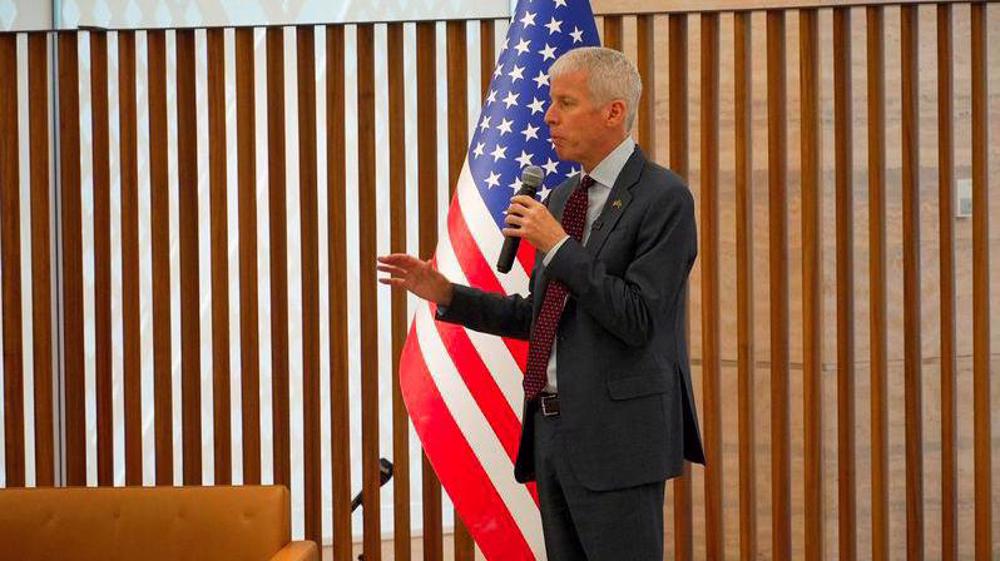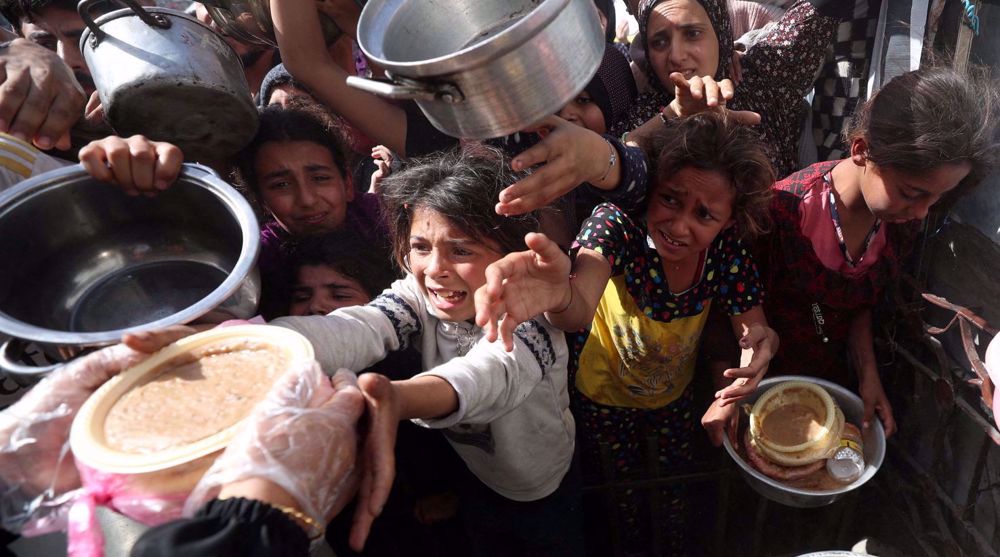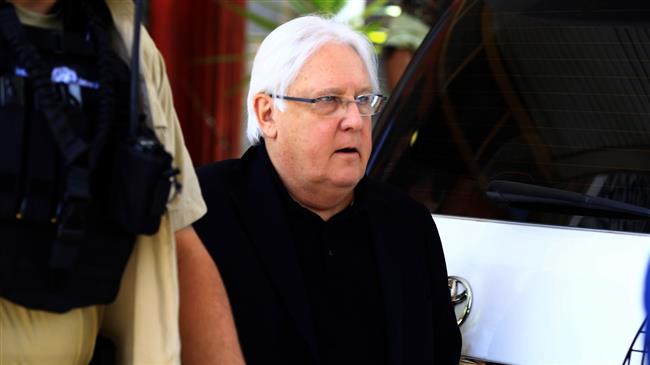War in Yemen eminently resolvable: UN
The United Nations (UN) says the years-long war in Yemen can be stopped and is “eminently resolvable” as the warring sides are committed to a UN-brokered peace agreement reached in Sweden late last year.
In December 2018, representatives of the Houthi Ansarullah movement and those of Yemen’s Saudi-backed former government signed a peace deal in the Swedish capital of Stockholm. Under the deal, both sides agreed to withdraw their troops from the ports of Hudaydah, Salif, and Ras Issa, and the city of Hudaydah, and to allow the deployment of UN monitors.
The UN, for its part, also pledged to help in the management of the three key ports, which will be operating under the control of Yemen’s Red Sea Port Corporation and local coast guards. The world body also will assist in inspection of ships.
“I believe that this war in Yemen is eminently resolvable,” UN Special Envoy for Yemen Martin Griffiths on Tuesday. “Both parties continue to insist that they want a political solution and the military solution is not available, they remain committed to the Stockholm agreement in all its different aspects.”
The UN envoy’s comments came as the Houthi movement, which plays a significant role in assisting the Yemeni army against a Saudi-led military collation, has unilaterally withdrawn its fighters from the ports, but the forces of the former regime, backed by the invading coalition, have refused to do the same.
More than 70 percent of Yemen’s imports used to pass through the docks of Hudaydah, a lifeline for the war-ravaged country’s crippled economy. Salif was used for unloading all main types of grain, and Ras Issa, a vital oil terminal, was used for exporting Ma’rib’s light crude oil.
The three ports held by Houthis have been under tight siege by the former regime forces for months, pushing tens of thousands of people in Yemen to the verge of starvation and crippling the country’s economy.
The Stockholm deal was sealed in an effort to prevent the humanitarian situation from further deteriorating and to avert a larger assault by the Saudi-led coalition on the ports.
An unnamed senior Emirati official told reporters on July 8 that the United Arab Emirates (UAE) — Saudi Arabia’s main ally in the coalition — was planning a troop drawdown in Yemen in what was claimed to be a shift from a military strategy to a “peace” plan instead.
However, earlier on Tuesday, Emirati Minister of State for Foreign Affairs Anwar Mohammed Gargash claimed the UAE was “not leaving Yemen.”
Leading a coalition of its allies, Saudi Arabia invaded Yemen in March 2015 in an attempt to reinstall the former regime, which had been friendly to Riyadh, but whose officials fled the country.
The coalition has also imposed a naval blockade of Yemen.
The aggression is estimated to have left 56,000 Yemenis dead.
The Saudi-led war has also taken a heavy toll on the country’s infrastructure, destroying hospitals, schools, and factories. The UN has said that a record 22.2 million Yemenis are in dire need of food, including 8.4 million threatened by severe hunger. According to the world body, Yemen is suffering from the most severe famine in more than 100 years.

Saudi Arabia, US to sign agreement on civil nuclear program: Energy secretary

Saudi Arabia calls for 'maximum pressure' on Israel as UN warns of ‘longest Gaza blockade’

Saudi police ‘detain’ female pilgrim for displaying Palestinian flag in Mecca
VIDEO | Trump tariffs: A wrecking ball!
Israel deprives Gazans of basic needs for ‘survival’: UN
South Africa has no choice but to support resistance against Israel's genocide in Gaza
China supports Iran-US indirect talks, defends Tehran's nuclear right
VIDEO | Gaza’s dire conditions hit unprecedented levels
VIDEO | Press TV's news headlines
VIDEO | Pakistan’s business and cultural front unites for Gaza: Nationwide shutdown, boycott announced
US jets carry out more aggression against Yemen









 This makes it easy to access the Press TV website
This makes it easy to access the Press TV website